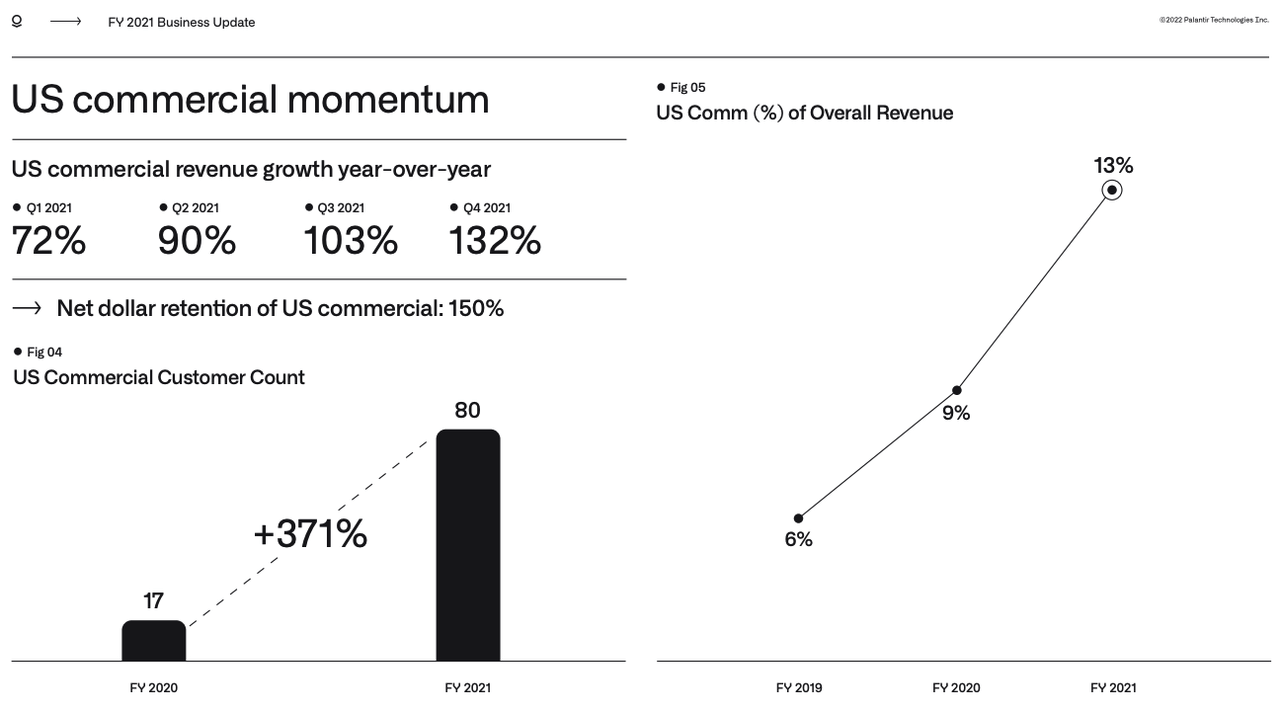The Palantir-NATO Deal: A Predictive AI Revolution For Government

Table of Contents
Enhanced Intelligence Gathering and Analysis
Palantir's Gotham platform, at the heart of the Palantir NATO deal, excels at integrating and analyzing vast quantities of data from diverse sources. This capability is transforming how NATO gathers and interprets intelligence.
Data Integration and Fusion
Palantir's platform is designed for data fusion, combining information from various NATO agencies, including intelligence services, military commands, and civilian organizations. This unified view offers unprecedented situational awareness.
- Combines data from various NATO agencies: This includes everything from satellite imagery and sensor data to social media feeds and financial transactions, creating a holistic picture of events.
- Facilitates faster identification of threats and patterns: By connecting seemingly disparate pieces of information, Palantir can help identify emerging threats and patterns far more quickly than traditional methods. This allows for a more proactive approach to security.
- Enables predictive modeling to anticipate future challenges: Going beyond reactive responses, the platform’s AI capabilities can analyze historical data and current trends to predict future threats and vulnerabilities. This allows NATO to preemptively allocate resources and prepare for potential crises.
Improved Threat Detection and Prevention
Leveraging advanced AI algorithms, the Palantir system enhances NATO’s ability to detect and prevent threats.
- Real-time threat analysis and risk assessment: The platform provides real-time insights into developing situations, enabling quicker and more informed decision-making.
- Proactive identification of potential terrorist activities or cyberattacks: By identifying suspicious patterns and anomalies, Palantir can assist in the proactive prevention of attacks before they occur.
- Predictive policing and resource allocation to high-risk areas: This data-driven approach allows for the strategic allocation of resources, improving the efficiency and effectiveness of security operations.
Streamlined Resource Allocation and Operational Efficiency
Beyond intelligence gathering, the Palantir NATO deal aims to improve resource allocation and overall operational efficiency within the alliance.
Optimized Resource Deployment
Palantir's data analytics capabilities enable NATO to optimize the deployment of its personnel and resources.
- Efficient deployment of troops and equipment during crises: The platform allows for rapid assessment of needs and more efficient deployment of personnel and equipment in response to emergencies.
- Improved logistical planning and supply chain management: By providing real-time visibility into logistical operations, Palantir can optimize supply chains and minimize delays.
- Reduced operational costs through optimized resource utilization: Efficient resource allocation leads to significant cost savings, maximizing the impact of NATO's budget.
Improved Interoperability and Collaboration
The platform facilitates seamless information sharing and collaboration among diverse NATO member states.
- Enhanced communication and collaboration between different agencies: Breaking down information silos between different agencies improves coordination and response times.
- Faster response times to critical events: By streamlining communication and decision-making, the platform allows NATO to react more quickly to critical events.
- Improved coordination of joint military operations: Facilitating better information sharing and coordination amongst different military forces significantly enhances the effectiveness of joint operations.
Ethical and Privacy Concerns Surrounding the Palantir NATO Deal
While the Palantir NATO deal offers substantial benefits, it also raises significant ethical and privacy concerns.
Data Privacy and Security
The use of sensitive data necessitates robust security measures and stringent privacy protocols.
- Robust data encryption and security measures are crucial: Protecting sensitive data from unauthorized access is paramount. Stringent security protocols are essential to prevent breaches.
- Transparency and accountability in data handling are vital: Clear guidelines and oversight mechanisms are crucial to ensure responsible data handling and prevent misuse.
- Compliance with data privacy regulations is paramount: Adherence to international and national data privacy regulations, such as GDPR, is crucial to maintaining public trust.
Algorithmic Bias and Fairness
Predictive models can perpetuate and amplify existing biases present in the data they are trained on.
- Regular audits and bias detection mechanisms are necessary: Continuous monitoring and auditing are vital to identify and mitigate potential biases in the system.
- Ensuring fairness and equity in algorithmic decision-making: Algorithmic fairness is crucial to avoid discriminatory outcomes. Mitigation strategies should be proactively implemented.
- Addressing potential discrimination and unintended consequences: A thorough risk assessment and mitigation plan are necessary to prevent unintended consequences and discriminatory outcomes.
Conclusion
The Palantir-NATO deal represents a significant advancement in the use of predictive AI within governmental organizations. While it offers immense potential for enhanced intelligence gathering, resource allocation, and operational efficiency, addressing ethical and privacy concerns is paramount. The success of this partnership hinges on responsible implementation, transparency, and a commitment to mitigating potential risks. Understanding the intricacies of the Palantir NATO deal is crucial for anyone interested in the future of predictive AI in government and its impact on national security. For further insights into the implications of this transformative technology, continue researching the Palantir NATO deal and its effects on global security.

Featured Posts
-
 Vozvraschenie Stivena Kinga V X Oskorblenie Ilona Maska
May 09, 2025
Vozvraschenie Stivena Kinga V X Oskorblenie Ilona Maska
May 09, 2025 -
 Should You Buy Palantir Stock Before May 5 A Pre Earnings Analysis
May 09, 2025
Should You Buy Palantir Stock Before May 5 A Pre Earnings Analysis
May 09, 2025 -
 Mulher Presa Na Inglaterra Suspeita De Perseguir Pais De Madeleine Mc Cann
May 09, 2025
Mulher Presa Na Inglaterra Suspeita De Perseguir Pais De Madeleine Mc Cann
May 09, 2025 -
 Family Support For Dakota Johnson At Materialist Film Premiere
May 09, 2025
Family Support For Dakota Johnson At Materialist Film Premiere
May 09, 2025 -
 Us Attorney Generals Daily Fox News Appearances Whats Really Going On
May 09, 2025
Us Attorney Generals Daily Fox News Appearances Whats Really Going On
May 09, 2025
Latest Posts
-
 Nl Federal Election Get To Know Your Candidates
May 09, 2025
Nl Federal Election Get To Know Your Candidates
May 09, 2025 -
 Aviations Living Legends Celebrate Bravery Honoring Firefighters And More
May 09, 2025
Aviations Living Legends Celebrate Bravery Honoring Firefighters And More
May 09, 2025 -
 Meet Your Nl Federal Election Candidates A Comprehensive Guide
May 09, 2025
Meet Your Nl Federal Election Candidates A Comprehensive Guide
May 09, 2025 -
 A Uk Citys Changing Landscape The Caravan Controversy
May 09, 2025
A Uk Citys Changing Landscape The Caravan Controversy
May 09, 2025 -
 Living Legends Of Aviation A Tribute To Firefighters And First Responders
May 09, 2025
Living Legends Of Aviation A Tribute To Firefighters And First Responders
May 09, 2025
